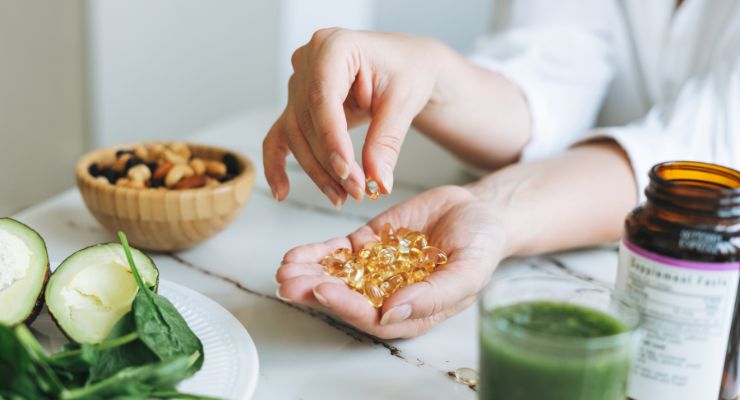03.04.24
An annual survey of more than 10,000 regular dietary supplement users showed that vitamin D remains the most popular supplement, for the ninth year in a row, purchased by 70% of respondents. Magnesium remained the second most popular supplement, used by 57.9% of respondents, just ahead of fish oil.
Results came from the most recent ConsumerLab.com Survey of Vitamin and Supplement Users, conducted last November/December among readers of the company’s newsletter, which offers product reviews and information about supplements and health foods. Respondents are active users of supplements, with over 76.9% taking at least four different supplements daily.
According to the survey, the following products experienced the greatest absolute growth in popularity during 2023: pregnenolone (+7.5 percentage points), magnesium (+4.8 pts), berberine (+4.3 pts), taurine (+4.2 pts), PQQ (+4.1 pts), collagen (+3.8 pts), protein and nutrition powders and drinks (+3.6 pts), vitamin K (+3.1 pts), and lion’s mane (+3 pts).
Meanwhile, the greatest declines were with biotin (-11 pts), joint health supplements (-6.8 pts), potassium (-6.4 pts), probiotics (-6 pts), prebiotics (-4.2 pts), and CBD (-3.4 pts).
Among the current top 50 supplements, 15 declined in popularity rank while 25 showed an increase. Nutritional yeast and manuka honey made their debut in the top 50 supplements, as well as bioperine, lion’s mane, and electrolytes. The survey assessed the popularity of 211 types of supplements—including supplements for pets—and analyzed popularity by respondent age, gender, and frequency of supplement use.
"The annual survey is a useful indicator of change in the market for dietary supplements and health foods. It guides our selection of products to test," said Tod Cooperman, MD, ConsumerLab's president and founder.
Results came from the most recent ConsumerLab.com Survey of Vitamin and Supplement Users, conducted last November/December among readers of the company’s newsletter, which offers product reviews and information about supplements and health foods. Respondents are active users of supplements, with over 76.9% taking at least four different supplements daily.
According to the survey, the following products experienced the greatest absolute growth in popularity during 2023: pregnenolone (+7.5 percentage points), magnesium (+4.8 pts), berberine (+4.3 pts), taurine (+4.2 pts), PQQ (+4.1 pts), collagen (+3.8 pts), protein and nutrition powders and drinks (+3.6 pts), vitamin K (+3.1 pts), and lion’s mane (+3 pts).
Meanwhile, the greatest declines were with biotin (-11 pts), joint health supplements (-6.8 pts), potassium (-6.4 pts), probiotics (-6 pts), prebiotics (-4.2 pts), and CBD (-3.4 pts).
Among the current top 50 supplements, 15 declined in popularity rank while 25 showed an increase. Nutritional yeast and manuka honey made their debut in the top 50 supplements, as well as bioperine, lion’s mane, and electrolytes. The survey assessed the popularity of 211 types of supplements—including supplements for pets—and analyzed popularity by respondent age, gender, and frequency of supplement use.
"The annual survey is a useful indicator of change in the market for dietary supplements and health foods. It guides our selection of products to test," said Tod Cooperman, MD, ConsumerLab's president and founder.




























